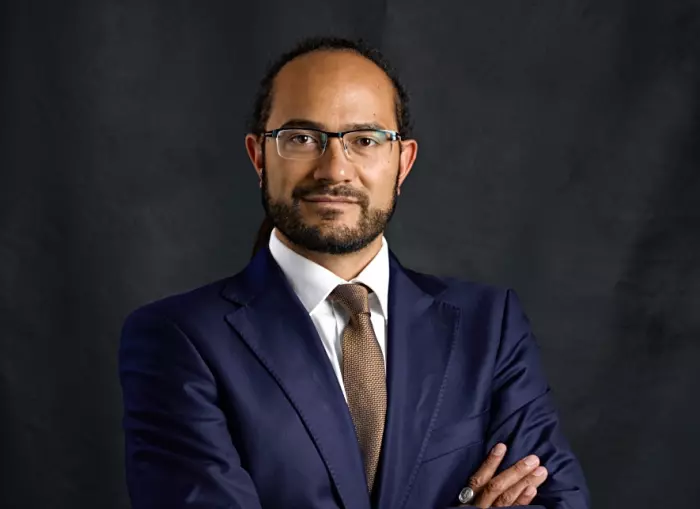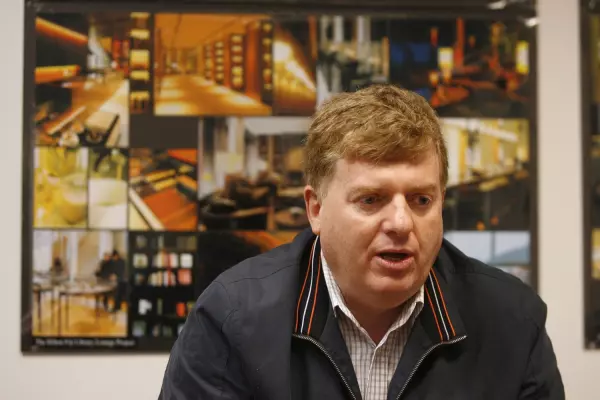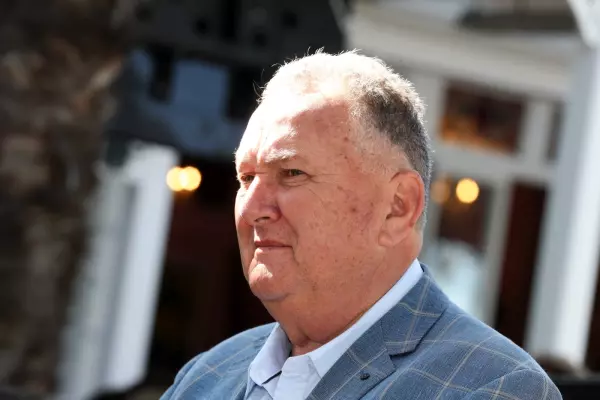Former Russell McVeagh lawyer James Gardner-Hopkins may be able to practise law again after two years following a Lawyers and Conveyancers Disciplinary Tribunal decision delivered last week.
In 2021, the resource management expert was found guilty of misconduct after he groped summer interns who worked at the firm.
The revelations – detailed in a Newsroom story – had a significant impact on the firm which underwent a culture and culture review.
The Law Society was able to succeed on seven charges against Gardner-Hopkins but dropped its pursuit of an eighth, serious allegation ahead of the hearing.
In a decision dated Jan 13, the tribunal said Gardner-Hopkins should not be struck off as a lawyer – which would ban him from practising – but he was suspended for two years.
It said despite his suspension Gardner-Hopkins can still act in a case set for the high court in February, which he is doing on a pro bono, or no fee, basis.
“We consider that Mr Gardner-Hopkins has, albeit belatedly, and with a little less enthusiasm than we might have wanted to see, taken positive steps to reflect, face up to and deal with the factors which led him to this point,” the 21-page decision reads.
The tribunal, chaired by Judge Dale Clarkson, noted the events which caused Gardner-Hopkins to lose his reputation and job would have had a financial impact on the lawyer, who no longer owned a home but rented one. It also said he now had a young baby.
The tribunal accepted Gardner-Hopkins now had “significant daily responsibilities for his baby daughter” and said “that, in itself is a protective factor in our view”.
Alcohol was a contributing factor in the misconduct and he had since significantly reduced his alcohol intake.
The decision said Gardner-Hopkins had “almost entirely lost the collegial support of his profession, over a long period” and through the covid-19 lockdown periods his professional isolation increased.
“On balance, we have concluded that it is in Mr Gardner-Hopkins’ best interests for us to suggest a potential pathway for him to achieve reintegration into the profession.
“It is clear to us that his abilities as a lawyer generally, and as an advocate in particular, are such that it will be beneficial to the public if he were readmitted to the profession in a rehabilitated state as soon as practicable after the period of suspension expires.”
After the two years Gardner-Hopkins will have to prove to a committee he is no longer a risk of misconduct, and the tribunal suggested he get a legal mentor and a therapist who can later explain to the committee how his risky behaviour has been mitigated.
The names of the interns have been suppressed. The behaviour at issue was described as exploitative sexual conduct with five different women at two work events.














